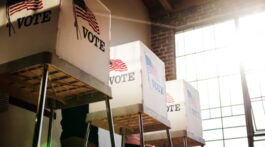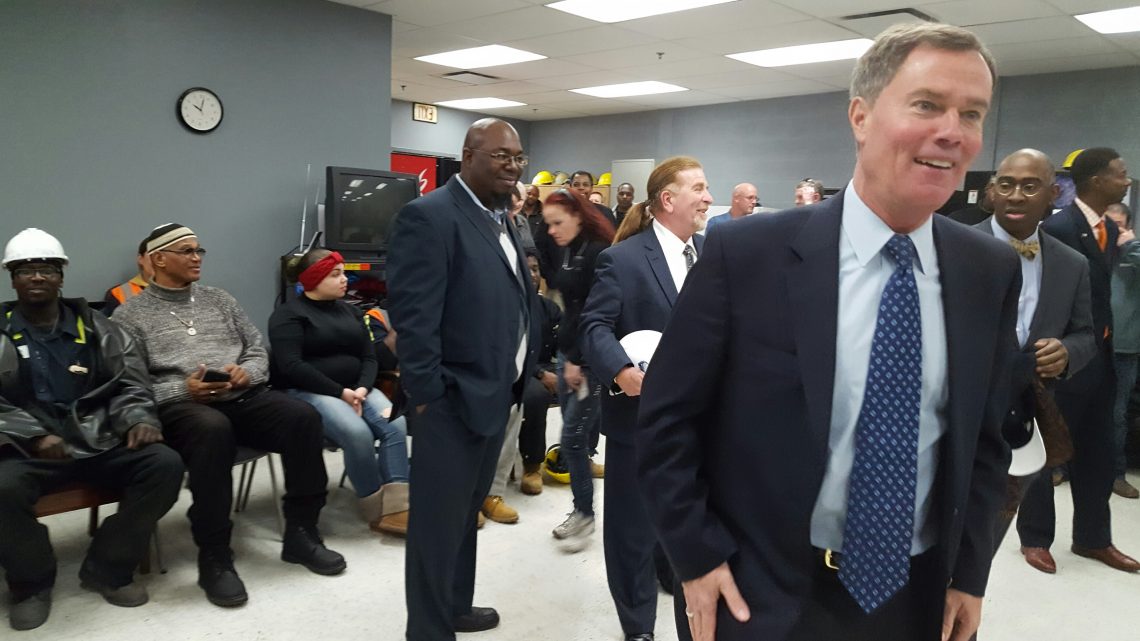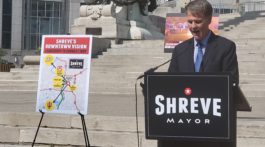Mayor Joe Hogsett announced the legislative priorities for the City of Indianapolis in the upcoming 2023 session of the Indiana General Assembly.
The Mayor’s priorities include infrastructure, public health, housing and public safety.
Infrastructure
Since taking office, Mayor Hogsett and the City of Indianapolis have worked with legislative partners to lay out the funding needs for the City, the inequities in current state funding, and options for state-local partnership in updating aging infrastructure. The City of Indianapolis has also collaborated with the Central Indiana Regional Development Authority and the Central Indiana Chief Elected Officials organization, which support additional infrastructure dollars for the Central Indiana region so that funding is distributed in a manner that is more reflective of the traffic needs of the economic engine of our state.
The City will encourage exploration of many options to address these concerns, including:
- Adjusting the funding formula around the full population of the Consolidated City of Indianapolis, rather than by the fire service territory;
- Re-structuring the criteria for Community Crossings grant program to better scale with the infrastructure needs of more populous counties;
- Refinancing older bonds, allowing for debt service to be invested back into local road funding.
Housing
At a time when homeowners and tenants in Indianapolis, and across the state, are facing the consequences of a housing shortage and inflation, the City of Indianapolis will request that the General Assembly provide additional support on housing. This should include legislation to prevent displacement of longtime homeowners living in neighborhoods undergoing rapid changes in assessed value (and therefore property taxes). The City will also seek new resources to address the findings of the state Housing Task Force, as well as additional funding to further advance anti-displacement initiatives and programs enacted by the City locally.
The City of Indianapolis remains committed to tenants’ rights and requests a restoration of the ability to enforce local regulations around tenant-landlord relationships, including the Tenant Bill of Rights. Issues in recent years around landlord-utility nonpayment required partnership between the City and the Indiana Attorney General’s Office to resolve. Additional protections for renters, such as rent withholding and utility escrows, should also be considered. As the City of Indianapolis transforms IndyRent into a more permanent rental assistance program, new state funding would help continue the effort and create more stable living conditions for thousands of residents.
Specific to housing efforts on homelessness, the City requests that the General Assembly provide statewide funding to support the findings of the state Low-Barrier Shelter Task Force. This includes resources for master leasing of apartment units, supportive services, and shelter operations. Such funding would allow the City of Indianapolis to continue pursuing its Housing First strategy to reduce homelessness.
Public Safety
Building off the success of the Indiana Crime Guns Task Force, which began as the Indianapolis Metropolitan Police Department Crime Gun Intelligence Center, the City of Indianapolis is requesting state action to address the proliferation of 3D-printed converters. Also known as “glock-switches,” these converters transform a semi-automatic weapon into a fully automatic weapon. These weapons are becoming increasingly common in Indianapolis and across the country, creating a need for additional legislation to clarify their classification and reduce their threat to public safety. The City also will support additional measures to reduce access to firearms for young people, those suffering from mental health challenges, and convicted felons.
As part of the City’s continued focus on criminal justice reform, an expanded Division of Re-Entry has connected with thousands of individuals leaving incarceration at the Community Justice Campus, providing connections to rides, food, employment, mental health resources, and more. Additional resources from the state would help continue and expand that work, empowering those who were formerly incarcerated and reducing the rate of recidivism.
Public Health
As Indiana emerges from a once-in-a-century pandemic, the need for robust public health funding is evident. That includes support for local entities to prepare and respond to the next public health crisis, in whatever form it may take. That also means support for those experiencing the lingering effects of the pandemic, such as resources for individuals suffering from addiction or mental health challenges, including the continued opioid crisis.
Food access remains a critical component for public health. The City’s Division of Community Nutrition and Food Policy has connected households to fresh produce options, partnered on transportation to grocery stores, collaborated with food banks and food pantries on food distributions, empowered small business grocers, and much more. Yet present economic conditions necessitate further resources to build out a better food access ecosystem, encourage healthy foods, and reduce food deserts. State funding is critical in making that a reality.














